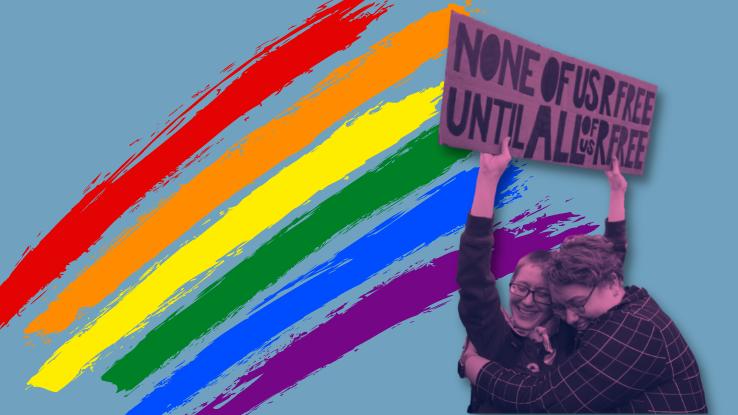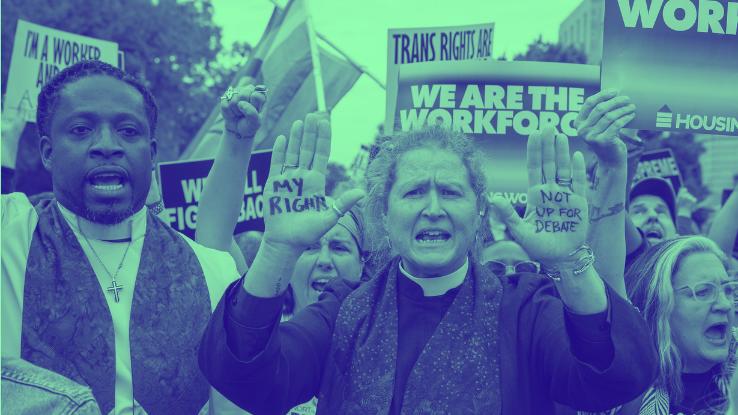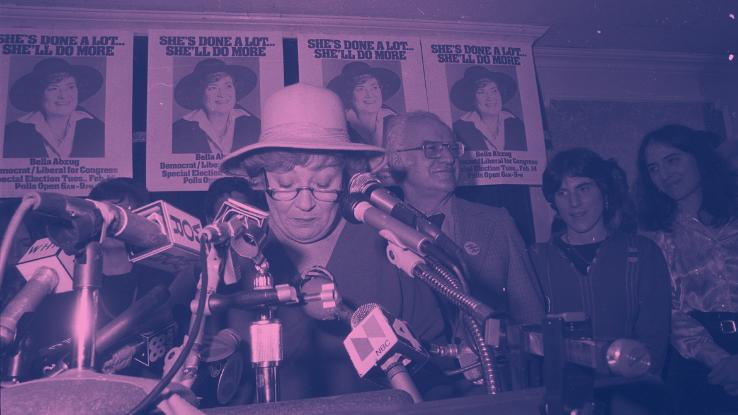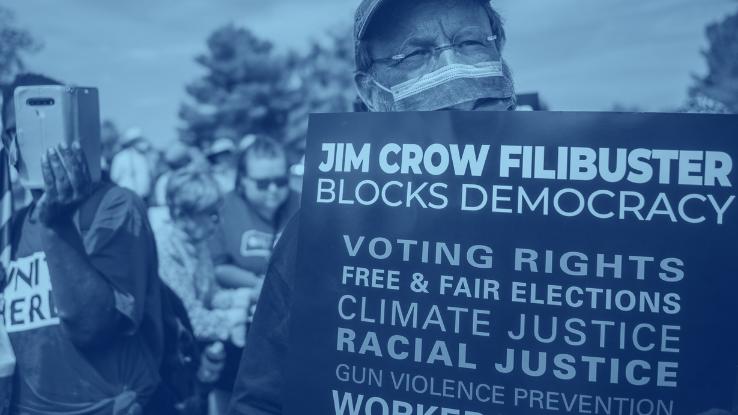
In June 2020, the Supreme Court of the United States ruled that, under Title VII of the Civil Rights Act of 1964, LGBTQ+ workers are protected from workplace discrimination. For the 6-3 majority ruling, Justice Neil M. Gorsuch wrote, “An employer who fires an individual merely for being gay or transgender defies the law.” For those unfamiliar with the Civil Rights Act of 1964, Title VII’s language “bars employment discrimination based on race, religion, national origin and sex” — and, since 2020, that language has firmly applied to discrimination based on sexual orientation and gender identity.
Landmark for many reasons, Bostock v. Clayton County (and its June 2020 ruling) marked the first major case that outrightly protected the rights of transgender Americans. Before, it was legal in more than half of the states to fire workers for being gay, bisexual, transgender or queer. That is, even though gay marriage has been the law of the land since 2015, LGBTQ+ folks in some states could get married over the weekend — and then fired on Monday, simply for living openly and truthfully with their same-sex spouse. Of course, at-will employment laws still pose issues. And, undoubtedly, the need for anti-discrimination protections for LGBTQ+ Americans extends far beyond employment and marriage.
And that’s where the Equality Act comes into play. First introduced under this name in the House of Representatives on March 13, 2019, bill H.R.5, or the Equality Act, aims to increase federal protections for LGBTQ+ folks and women by amending current civil rights laws. Stalled in the Senate, the Equality Act is poised to become one of the most landmark pieces of civil rights legislation in decades — if it’s passed. With this in mind, we’re breaking down everything you need to know about the bill’s contents, history and future.
What Is the Equality Act?
On his first day in office, President Joe Biden signed an executive order to protect LGBTQ+ Americans from discrimination. Although the order marked a milestone in civil rights protections, advocates of the Equality Act want to codify these protections, and those affirmed in the Bostock v. Clayton County ruling, into law; after all, an executive order can be undone with the stroke of a pen.

Across the country, many LGBTQ+ Americans don’t have basic legal protections. The Transgender Law Center reports that only 45% of the LGBTQ+ population lives in states with high overall “policy tallies” — that is, “laws and policies within the state that help drive equality for LGBTQ+ people.” The Human Rights Campaign (HRC) perhaps summarizes it best, noting that “The patchwork nature of state non-discrimination laws and the lack of permanent, comprehensive federal non-discrimination laws leaves millions of people subject to uncertainty and potential discrimination that impacts their safety, their families, and their day-to-day lives.”
At its core, that’s why the Equality Act — which would provide consistent anti-discrimination protections for LGBTQ+ Americans in areas like housing, employment, education, federally funded programs, credit, public spaces, healthcare and more — is so essential. In addition to amending existing civil rights laws, including the Civil Rights Act of 1964, the Fair Housing Act and others, the Equality Act would “update the public spaces and services covered in current law to include retail stores, services such as banks and legal services, and transportation services” (via HRC). What many Americans fail to realize? The Equality Act is 46 years in the making.
The History of the Equality Act
Before any legislation was proposed, LGBTQ+ activists provided the framework for the modern queer liberation movement and the fight for both equality and equity. But the first time the forerunner to what’s now been dubbed the Equality Act entered the mainstream political conversation was back in 1974, when Bella Abzug — a lawyer, U.S. Representative and feminist activist — and Ed Koch — best known for serving as New York City’s mayor — brought an anti-discrimination bill to the House of Representatives.

As noted by GLAAD, Abzug aimed to “move the discussion around LGBTQ+ protections from the state and local levels, where it had been blocked or stalled by conservative politicians and some religious advocates.” However, this landmark, clear-cut effort to protect LGBTQ+ Americans didn’t get far. “The bill was dead on arrival; its introduction did not even merit mention in any media other than in the Congressional Record,” Julie Allen writes for NPR affiliate WBUR. “Federal LGBTQ anti-discrimination legislation has been introduced in all but one session of Congress since.”
The closest the legislation came to passing was 25 years ago. While the House voted in the affirmative, the Senate failed to pass the proposed bill by a single vote in 1996. Now, on February 25, 2021, the House yet again passed what’s now been dubbed the Equality Act, keeping in line with President Biden’s commitment to passing the legislation in his first 100 days in office. In fact, Biden has called transgender equality “the civil rights issue of our time” and affirmed that “No one should be fired, denied a home or access to services because of who they are or who they love.”
It’s clear that a majority of Americans agree. In March 2021, the HRC reported that a recent poll showed “an overwhelming seven in 10 voters support the Equality Act, spanning across demographic and partisan groups, including across all ages, races, religions, and political parties.” Unfortunately, the Senate poses a problem, just as it did over two decades ago.
How Can Lawmakers Pass the Equality Act in a Senate Ruled by the Filibuster?
Before being passed by the House, the legislation was attacked by Republican members of the Judiciary Committee during deliberations. Detractors cited the Religious Freedom Restoration Act, while congressman Tom McClintock (R-CA) took a stance against protections for folks who need gender-affirming healthcare.
“Each amendment proposed, in its own right, attempted to undermine the protections for the LGBTQ community outlined in the legislation or to create a loophole to allow discrimination against LGBTQ people,” Ty Gamble-Eddington wrote for GLAAD. In the end, the Equality Act passed in the House, but it seems to face an even tougher battle in the Senate.

Although Democrats, most of whom aim to pass the Equality Act, have a slight advantage in the Senate thanks to Vice President Kamala Harris’ tie-breaking vote, the filibuster presents a real obstacle. That is, 60 votes are needed to pass the legislation, which means all of the Senate’s Democrats and at least 10 Republican lawmakers would need to vote in the affirmative.
Initially, Senator Susan Collins (R-ME), who, in the wake of the Bostock v. Clayton County ruling led a bipartisan coalition of Senators advocating for the passage of the Equality Act, rescinded her support earlier this year. But even on the Democratic side, things are uncertain. Senator Joe Manchin (D-WV), a self-described “moderate,” voiced his concerns about the Equality Act, claiming to support equality for all while citing protections for transgender students as something that’s giving him pause.
Outside the Senate, there’s the violently anti-LGBTQ+ Heritage Foundation, which has a long, long history of bigoted actions and viewpoints. “The organization opposes bans on the discredited, dangerous practice of conversion therapy, and its president, Kay Cole James, has likened LGBTQ+ people to ‘drug addicts, alcoholics, adulterers, or “anything else sinful,”‘” Julie Compton reports for them.
This year alone, state legislatures across the country have introduced more than 100 bills aimed at discriminating against transgender Americans and restricting the rights of trans people. In total, the HRC reports that more than 250 bills aimed at the wider LGBTQ+ community have been brought to state legislatures in 2021. All of this to say, political attacks on LGBTQ+ folks are increasing in the U.S., which makes the passage of the Equality Act in 2021 all the more essential.
Editor’s Note: Since this is a developing story, check back for the latest on where the Equality Act stands. In the meantime, for those who want to take action, the Human Rights Campaign has rounded up five ways you can get involved, all of which you can do from home.






